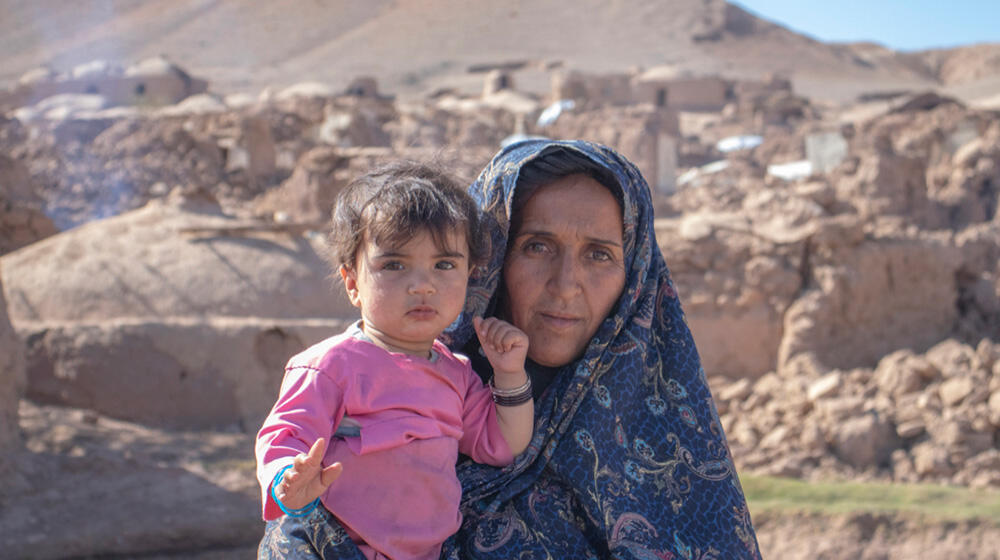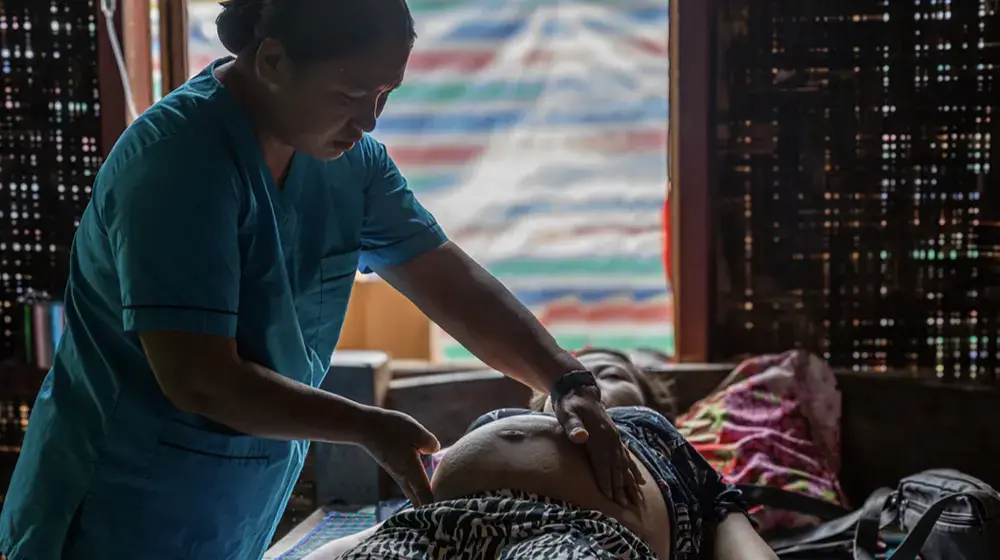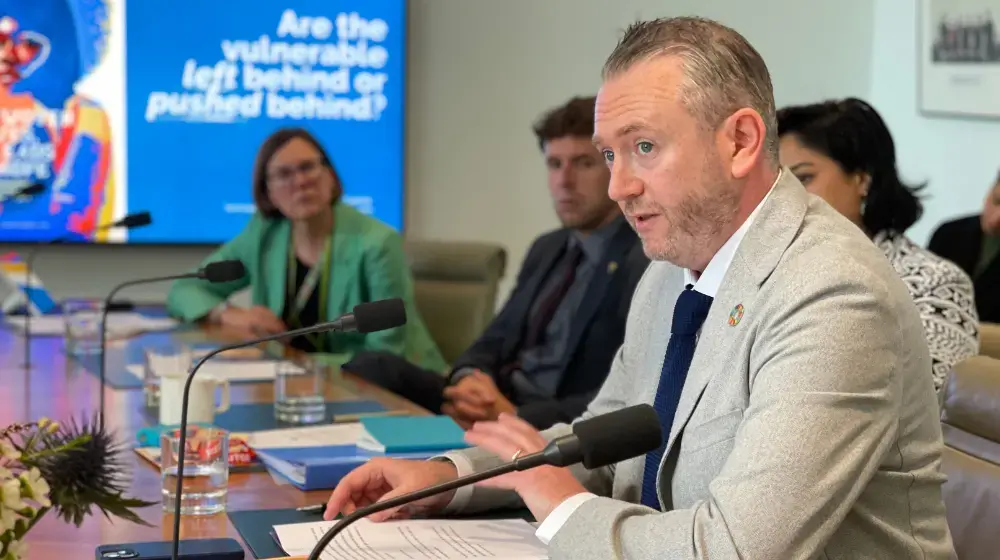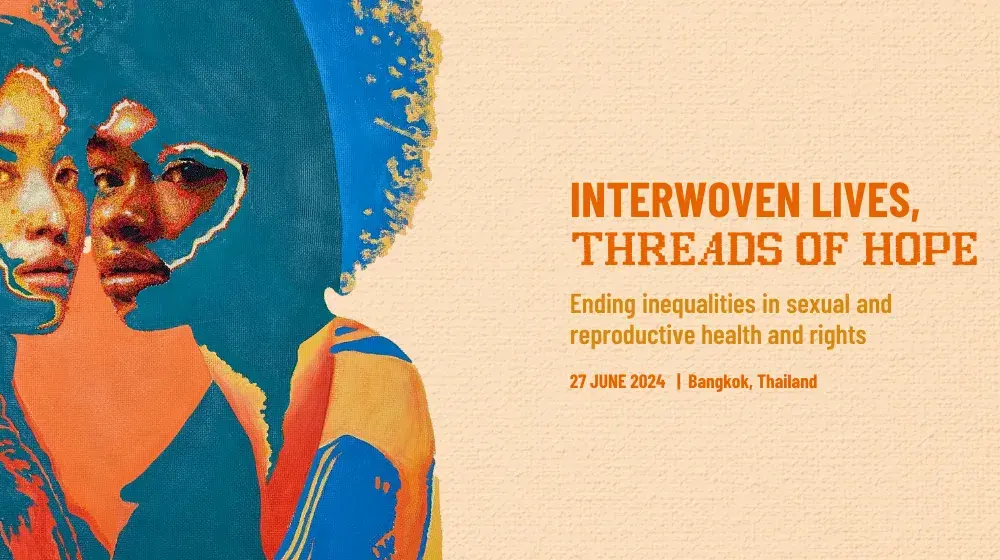Herat
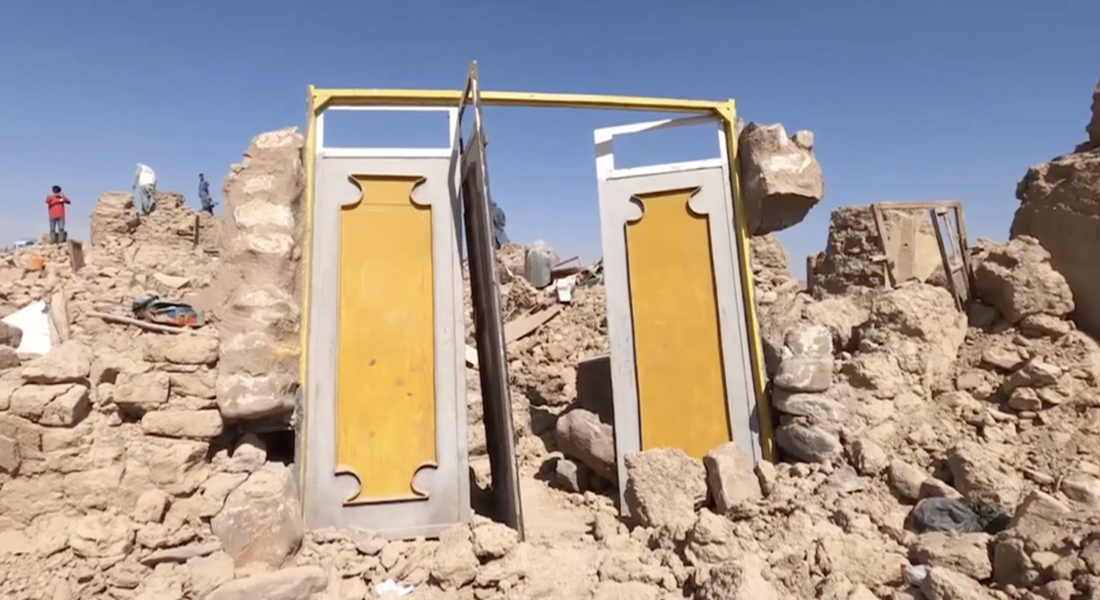
Between 7-15 October 2023, 4 earthquakes struck the Herat Province in Afghanistan, affecting 1.6 million people. More than 2 months later, over 76,000 women, including 38,000 girls are in need of humanitarian assistance as they recover from the disaster.
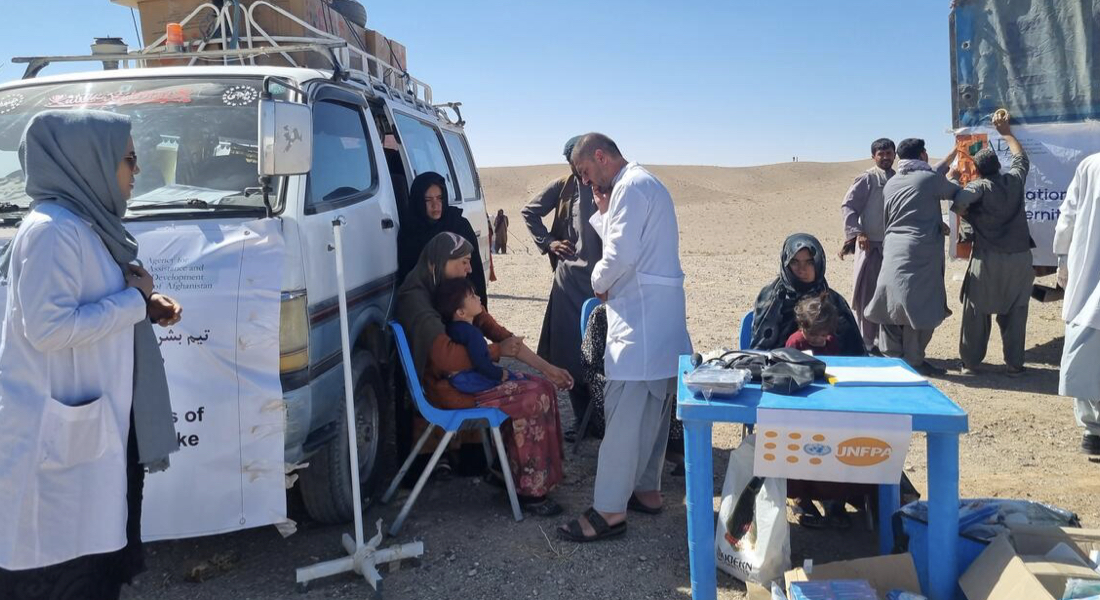
UNFPA’s mobile health teams are on the ground in Herat providing life-saving maternal and reproductive health services and psychosocial support, including counselling services. Together with our partners, UNFPA is committed to supporting Afghan women and girls to cope with the trauma and rebuild their lives.
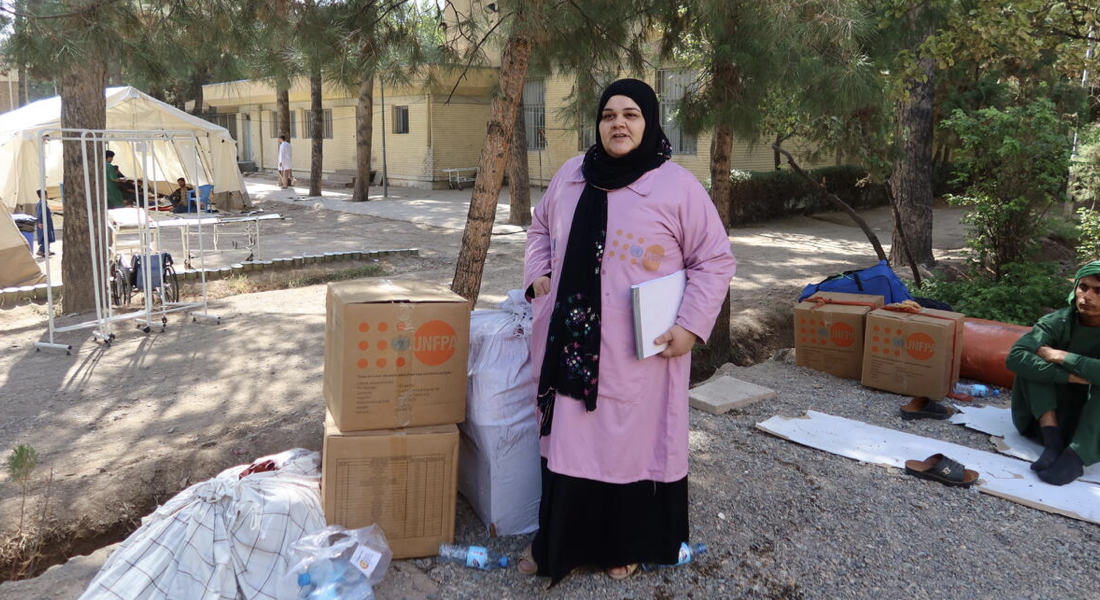
Nafisa Hotak is a midwife from a neighbouring province. She was deployed to Herat within 24 hours of the earthquake to support pregnant women through a UNFPA supported maternal health tent. Within 72 hours, UNFPA set up medical tents to provide immediate maternal health and psychosocial support on the ground. Today, these tents are replaced with a fully equipped emergency maternity unit providing normal and Cesarean-section delivery services, as well as counselling and mental health support for women and girls to help them cope with the grief of loss as they strive to rebuild their lives.
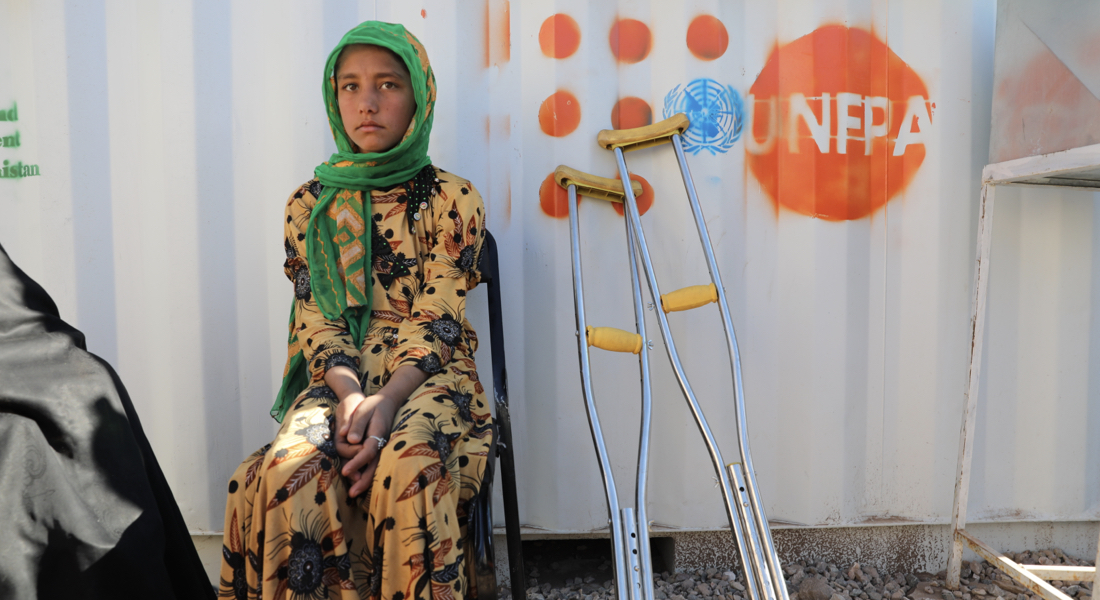
Amina is 11 years old. She faces the pain of fractured legs and the loss of her grandmother in the aftermath of the earthquake.
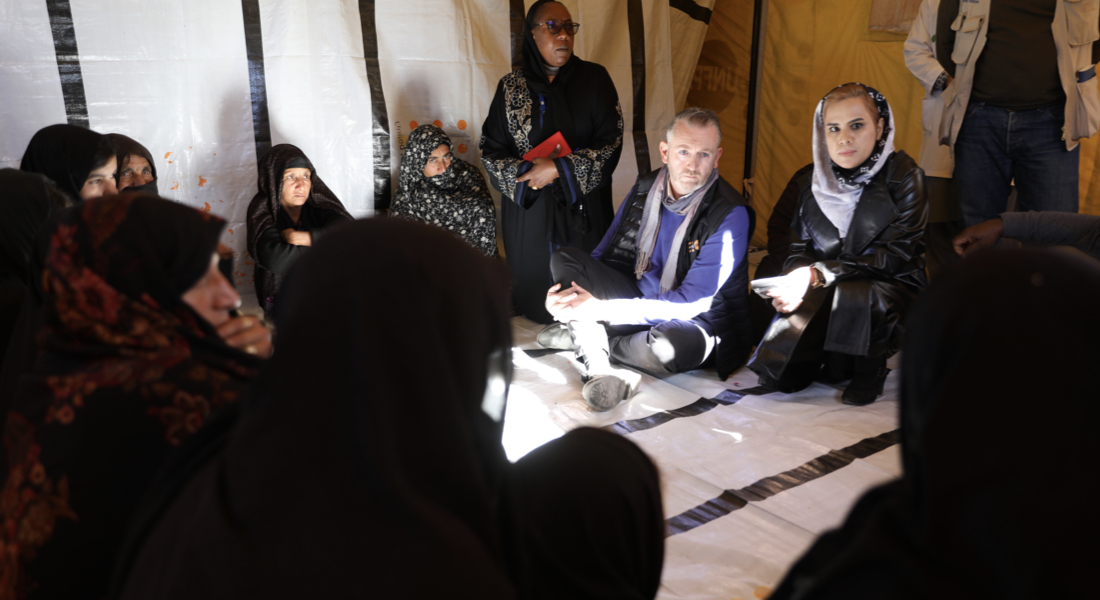
“Many of those affected, including pregnant women, have physical injuries from the earthquakes,” says Pio Smith, Regional Director for UNFPA Asia and the Pacific. “Beyond the physical scars, there are a lot of mental wounds. These women and girls are suffering – they are suffering because they have lost their families, they have lost their homes, they have lost their livelihoods – and they are in dire need of psychosocial support to help them cope and to help them rebuild.”
“I will remember the women and the girls that I met and who shared their stories with me; stories of immense sadness and desperation.”
-Pio Smith, Regional Director for UNFPA Asia and the Pacific
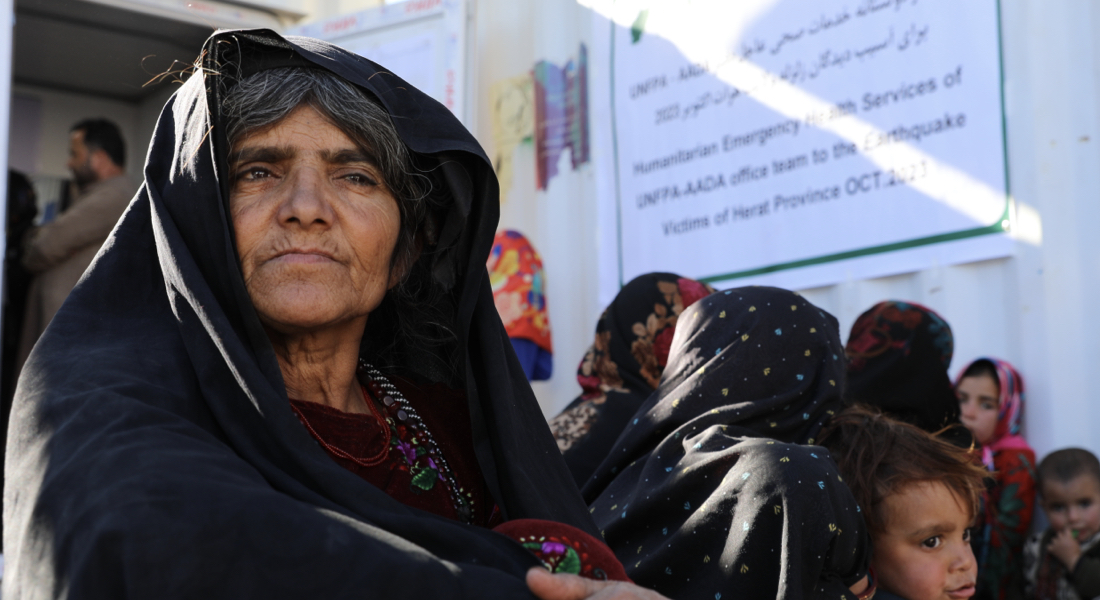
Maryam is from Naibrafi village in Zindajan. She lost her 20 year old daughter in the earthquake. She’s waiting to speak with a counsellor at the mobile health clinic that UNFPA and partners set up.
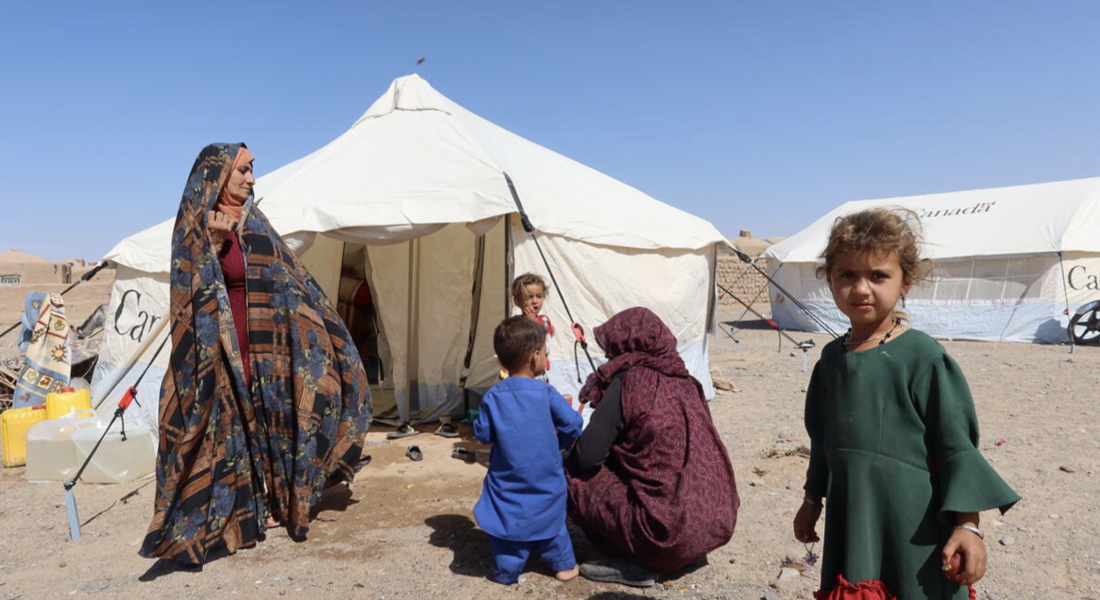
In the aftermath of the earthquake, survivors prefer to live in tents where they feel safe from strong aftershocks that continue. Three families live in this small tent in Zindajan district.
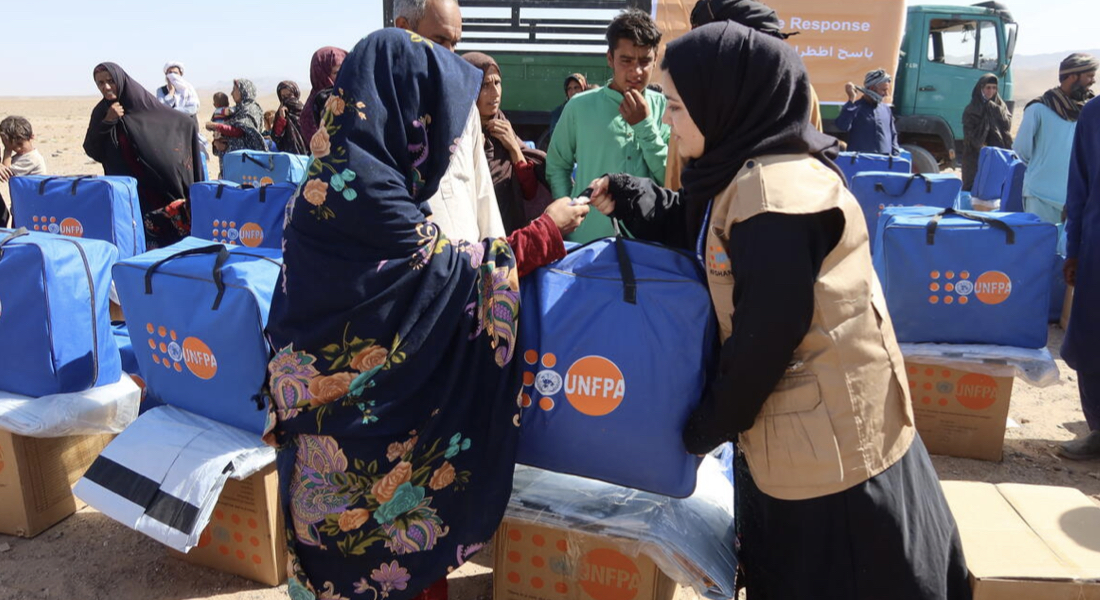
UNFPA distributed dignity kits, blankets and tarps immediately after the earthquake to help women and their children survive the cold as they are living in camps for displaced families.
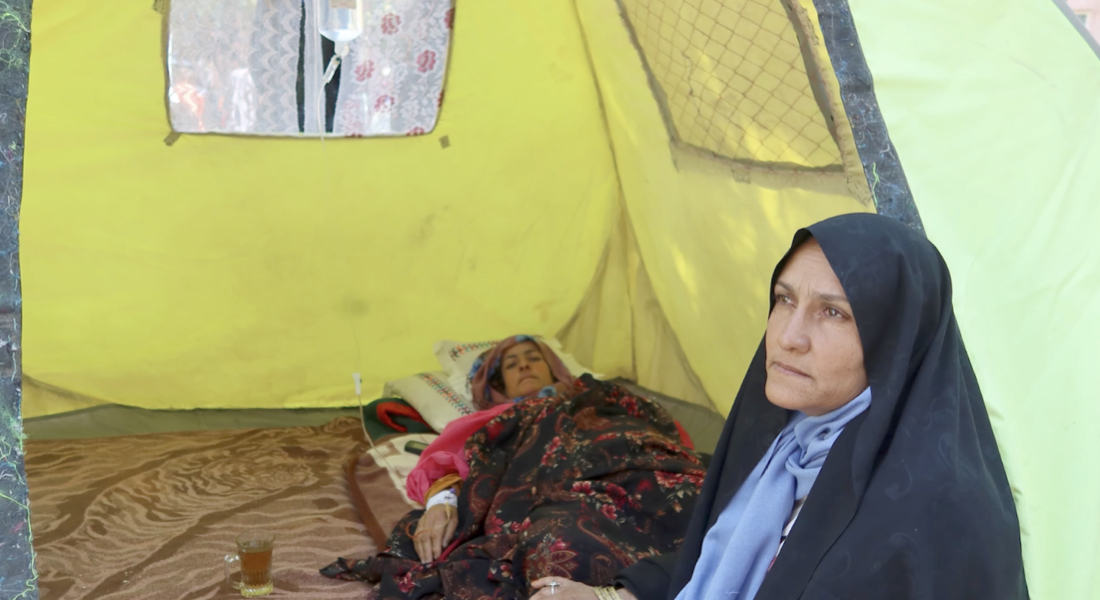
Displaced women worry about the loss of their homes, and in many cases they were also responsible for taking care of the injured in the family.
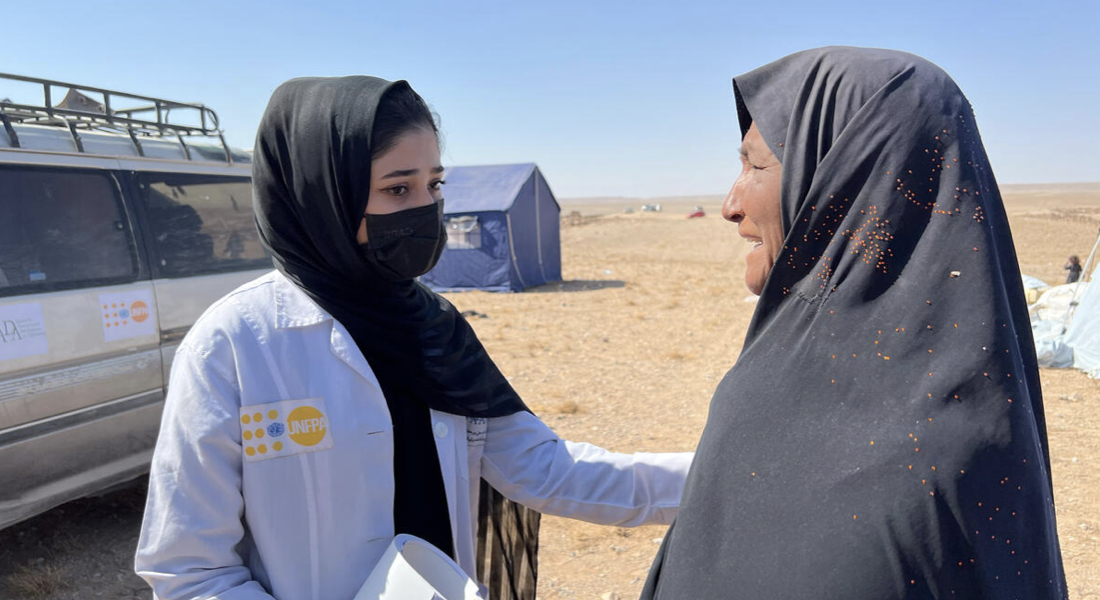
Faiza Sarie (left) is a psychosocial counsellor deployed to support a mobile health team. She comforts a woman from Zindajan who lost family members during the earthquake.
Torkham
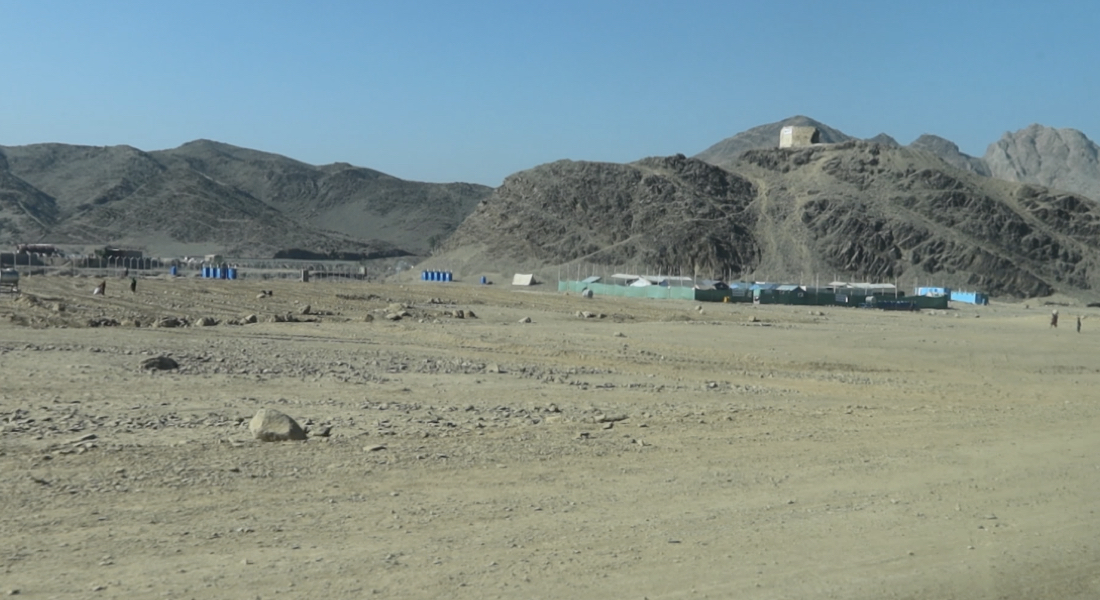
The borders at Torkham and Spin Boldak in Afghanistan are seeing a sharp increase in undocumented Afghans returning from Pakistan. Over the last two months, over 340,000 returnees have crossed over to Afghanistan.
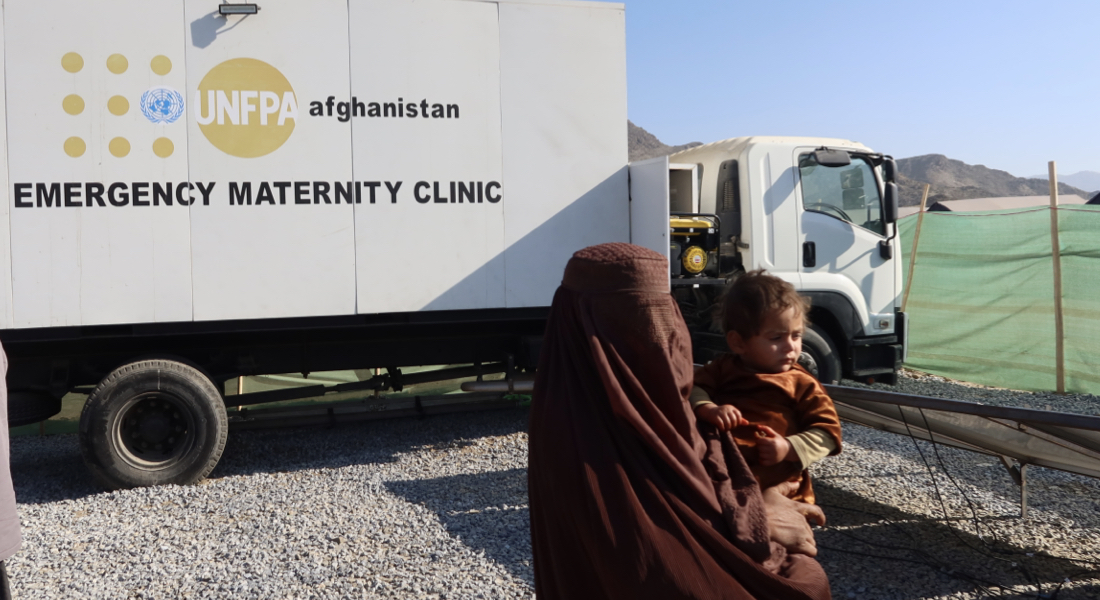
Together with our partners, UNFPA has set up an emergency maternity clinic within the reception centre at zero point in Torkham so that pregnant women can receive life-saving midwifery services and medical supplies for safe births.
"These life-saving services that UNFPA and our partners are providing are crucial in ensuring that the health and wellbeing of all Afghan women and girls is taken carefully into consideration and taken care of as they return to Afghanistan."
-Pio Smith, Regional Director for UNFPA Asia and the Pacific
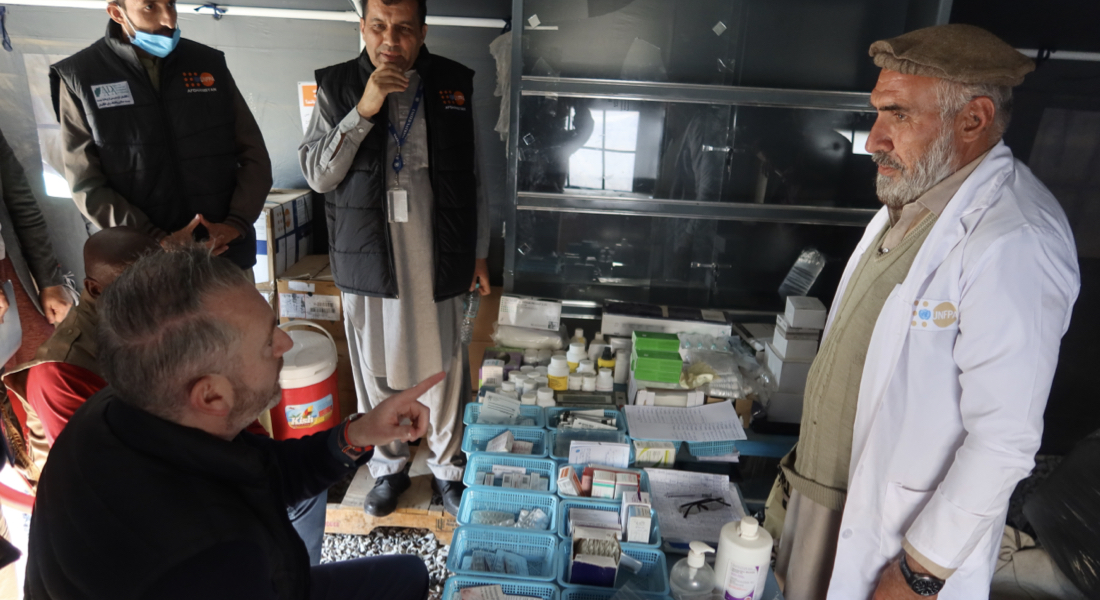
Pio Smith, Regional Director for UNFPA Asia and the Pacific, meets the pharmacist of the UNFPA clinic for returning Afghans in Torkham zero point.
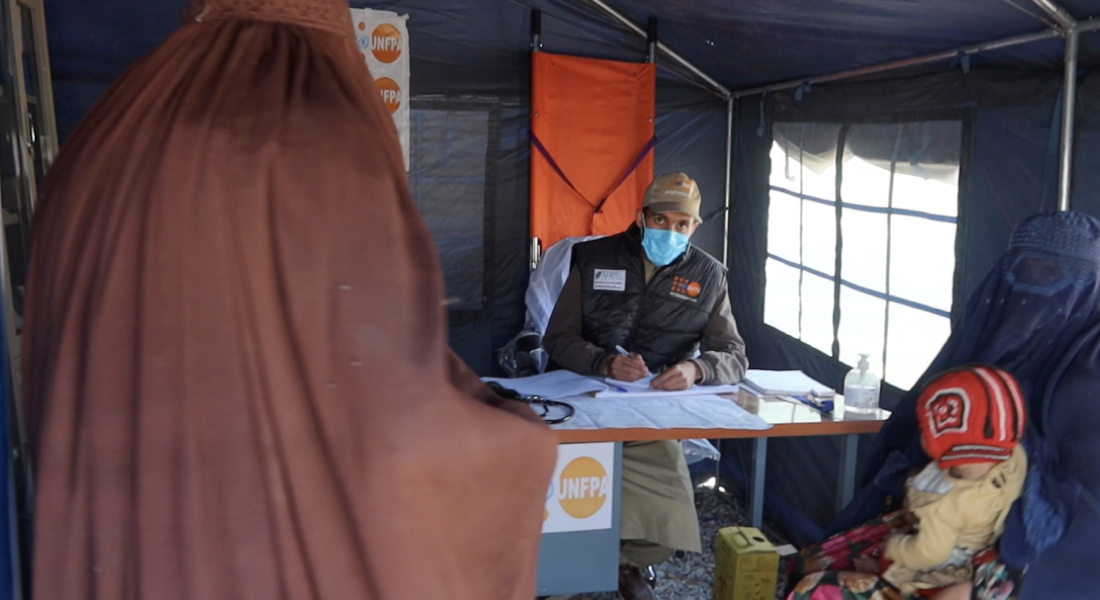
The head doctor at the Torkham reception centre clinic prescribes reproductive health medicines to a mother.
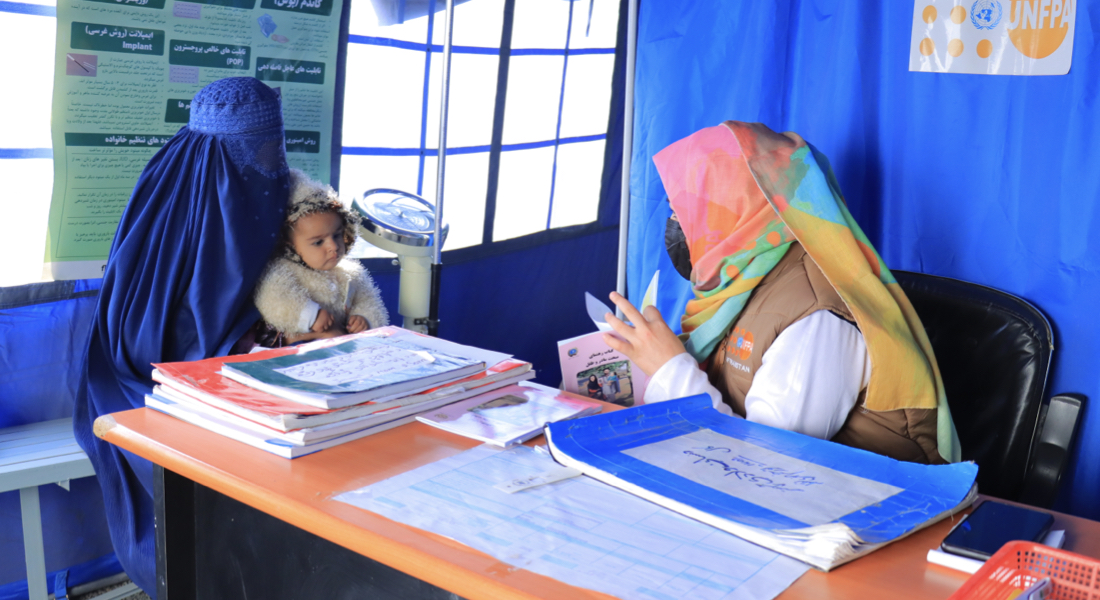
UNFPA is helping women and girls deal with trauma and stress by providing psychosocial support. These lifesaving services are crucial in ensuring the health and wellbeing of Afghan women and girls as they return to Afghanistan.
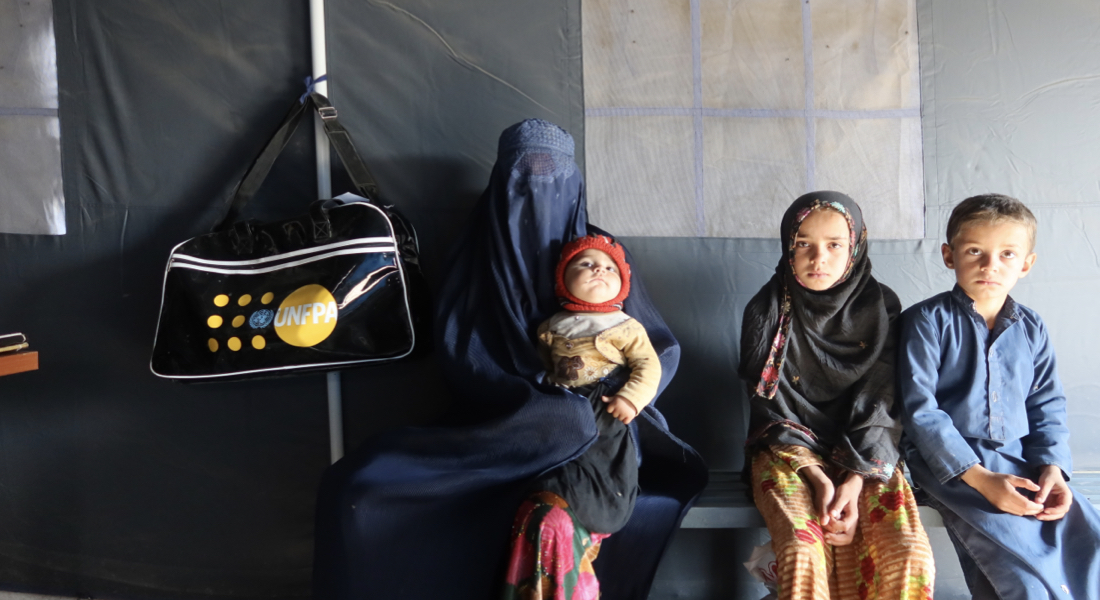
This mother’s youngest child is 6 months old. She came to the UNFPA Clinic at the Torkham centre to learn about birth spacing.
Learn more
UNFPA Humanitarian Action Overview
Photos
©UNFPA Afghanistan/ Qazizadah
©UNFPA Afghanistan/ Alano

